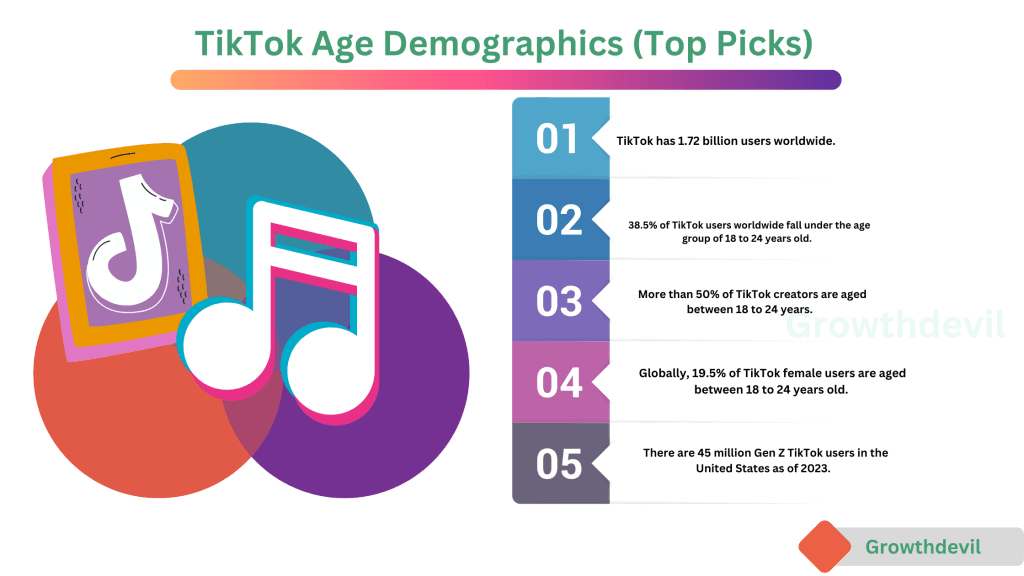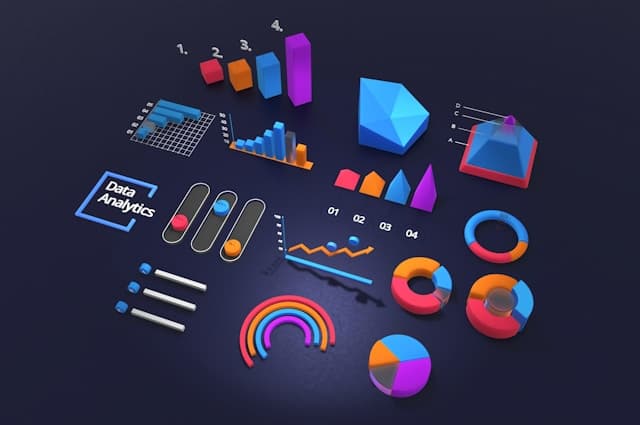
Beyond Likes: Measuring Real Engagement with AI in 2025
As we navigate the digital landscape approaching 2025, the integration of artificial intelligence (AI) is fundamentally reshaping how brands approach social media metrics and gain a profound understanding of user engagement. AI-powered engagement analysis is moving beyond simple data aggregation, offering automated interpretation and delivering nuanced insights into audience behaviors. This evolution empowers marketers to make data-driven, strategic decisions that not only optimize content strategies but also proactively cater to evolving consumer preferences and engagement expectations in an increasingly saturated digital sphere.
Key performance indicators (KPIs) such as Cost per Click (CPC), Social Share of Voice (SSoV), and Click-Through Rate (CTR) are being significantly enhanced through the sophisticated capabilities of AI-powered engagement analysis. This enables businesses to achieve more accurate predictions of advertising performance, gain a clearer understanding of their brand's visibility relative to competitors, and ultimately improve the effectiveness of user interactions. Furthermore, the deployment of AI-driven tools leveraging predictive analytics and advanced sentiment analysis allows for the forecasting of engagement trends and a deeper assessment of public perception. This proactive capability is crucial, allowing brands to refine their communication strategies in anticipation of shifts in audience behavior.
However, the increasing reliance on AI metrics for engagement analysis in 2025 is not without its inherent challenges. Persistent issues surrounding data privacy, the critical ethical considerations related to potential algorithm bias, and the ongoing complexities of distinguishing between meaningful engagement and superficial "vanity metrics" continue to present significant obstacles for organizations. Moreover, the existing shortage of skilled professionals capable of effectively implementing and managing sophisticated AI solutions further complicates the operational landscape, necessitating a delicate balance between leveraging technological advancements and nurturing authentic consumer relationships.
Looking ahead to the remainder of 2025 and beyond, the future of social media engagement is anticipated to be characterized by an intensified focus on highly personalized content delivery, significantly enhanced analytical capabilities powered by AI, and the widespread adoption of real-time engagement strategies also fueled by artificial intelligence. As brands strategically navigate this dynamic and evolving environment, the inherent ability to rapidly adapt to frequent algorithm changes implemented by social media platforms and to consistently uphold stringent ethical standards will be paramount in accurately measuring genuine engagement and cultivating lasting consumer trust within the digital realm.

Table of Contents
AI Metrics in Social Media: A 2025 Perspective
AI metrics are at the forefront of a significant transformation in how brands meticulously measure and comprehensively analyze social media engagement. By 2025, the deep integration of artificial intelligence (AI) into social media analytics has become not just an advantage but an absolute necessity for gaining a true understanding of intricate user behavior patterns and for the strategic optimization of content strategies to resonate effectively with target audiences.
Enhanced Metrics Analysis Through AI
The traditional methods of understanding and meticulously analyzing social media metrics have often been characterized by their inherent complexity and the significant time investment required. However, the advent and maturation of AI technology are fundamentally simplifying this critical process by automating intricate data analysis procedures and delivering actionable insights directly to marketers. Sophisticated tools, such as the AI Brand Assistant platforms like Brand24 offer, now provide comprehensive and easily digestible overviews of social media performance. These platforms highlight crucial metrics, including reach, sentiment, sources of engagement, and trending topics, all without the need for laborious manual calculations. This significant automation allows marketing professionals to strategically redirect their focus towards higher-level decision-making and the development of innovative strategies, rather than being overwhelmed by the sheer volume and complexity of raw data interpretation.
Key Metrics Significantly Leveraged by AI in 2025
Several critical metrics are experiencing substantial enhancement through the advanced capabilities of AI-powered engagement analysis in 2025:
Cost per Click (CPC) and Cost per Thousand Impressions (CPM)
Cost per Click (CPC) remains a fundamental metric, quantifying the precise amount of expenditure on advertising divided by the total number of actual clicks generated. This allows brands to rigorously assess the efficiency and cost-effectiveness of their advertising campaigns. Similarly, Cost per Thousand Impressions (CPM) continues to evaluate the cost advertisers incur for every thousand times their content is displayed to users. The application of AI analytics in 2025 significantly improves the utility of both metrics by leveraging historical campaign data to accurately predict which specific advertisements are most likely to achieve superior performance and deliver optimal returns on investment.
Social Share of Voice (SSoV)
Social Share of Voice (SSoV) provides invaluable insight into a brand's overall visibility and prominence within its competitive landscape by meticulously tracking the volume of brand mentions across various social media platforms. A higher SSoV generally correlates with a stronger market presence and more significant audience engagement. In 2025, AI tools have become indispensable for automating the real-time collection and analysis of this crucial data, enabling brands to quickly and accurately gauge their current position within the industry and make timely adjustments to their overarching marketing and communication strategies accordingly.
Click-Through Rate (CTR)
Click-Through Rate (CTR) directly reflects the inherent effectiveness of content in capturing user attention and compelling them to take a desired action, such as visiting a website or engaging with a specific offer. By harnessing the power of AI-driven predictive analytics, businesses in 2025 can now identify with greater precision the most impactful content formats, the optimal times for content dissemination, and the specific messaging that resonates most strongly with their target audiences. This capability allows for a significant enhancement of their CTR, ensuring that their campaigns are strategically aligned with actual audience preferences and behaviors.
The Evolving Role of Predictive Analytics and Sentiment Analysis in 2025
By 2025, AI technologies have significantly advanced in their ability to leverage sophisticated predictive analytics to accurately forecast future user behavior and emerging engagement trends. By meticulously analyzing historical interaction data, these intelligent tools can now provide highly targeted recommendations regarding content topics and relevant hashtags that are most likely to resonate with specific target audience segments. This proactive capability allows for the optimization of social media campaigns for maximum potential impact and engagement. Furthermore, advanced sentiment analysis powered by AI plays a critical role in helping brands gain a deep understanding of public perception by analyzing user-generated feedback and interactions in near real-time. This invaluable insight allows for timely and strategic adjustments to their communication strategies, ensuring that brand messaging remains aligned with evolving public sentiment.
Measuring Real Social Media Engagement in the 2025 Landscape

In 2025, the accurate measurement of genuine social media engagement necessitates a comprehensive and multifaceted approach that extends far beyond traditional "vanity metrics." It requires incorporating deeper insights into the nuances of user interactions and actual behaviors. Key engagement metrics, such as total engagement volume, overall engagement rate, individual likes and reactions, shares and reposts, and direct interactions (comments, direct messages), collectively provide a much clearer and more accurate picture of how target audiences are truly responding to content across various social media platforms.
Key Engagement Metrics in 2025
Engagement Rates
Engagement rates are calculated by determining the ratio of the total number of engagements (including reactions, likes, shares, and comments) to the total reach or overall impressions of a specific post or piece of content. These rates serve as a critical and vital indicator of how effectively content is resonating with the intended audience, providing valuable feedback that allows brands to strategically adjust their content and engagement strategies for improved impact.
Impressions and Reach in the Age of AI
Impressions continue to refer to the total number of times content is displayed on a user's screen, irrespective of whether the user actively interacts with it. Conversely, reach specifically indicates the total number of unique individual users who have actually seen the content. When analyzed together, these metrics provide brands with a comprehensive understanding of the overall exposure and potential impact of their social media efforts. A consistently high reach is often directly correlated with increased brand awareness and plays a crucial role in helping brands effectively navigate the increasingly dense and competitive landscape of digital content saturation.
Audience Sentiment and Real-Time Response Times
In 2025, the continuous monitoring of audience sentiment – gaining a deep understanding of how audiences genuinely feel about specific content and brand messaging – and the efficiency of response times to user queries or comments have become integral components of comprehensive engagement analyses. These metrics highlight the quality and depth of interaction between the brand and its audience, as well as the brand's responsiveness and commitment to its community, both of which are absolutely crucial for fostering lasting and meaningful relationships with consumers in the digital age.
The Enhanced Role of AI in Engagement Measurement by 2025
Artificial Intelligence (AI) tools are now being leveraged extensively to significantly enhance the precision and depth of measurement and analysis of social media engagement. Predictive analytics powered by advanced AI algorithms enables brands to analyze vast amounts of historical data to accurately forecast future trends in user behavior and overall engagement patterns. This sophisticated capability empowers businesses to tailor their content strategies with unprecedented effectiveness, leading to significantly enhanced audience targeting and greater engagement potential. To understand more about how AI is transforming social media management, you might find this article insightful: AI-Powered Social Media Management.
Advanced User Behavior Prediction and Trend Analysis
By 2025, AI has become adept at identifying intricate patterns within historical user interaction data, providing brands with the ability to anticipate with greater accuracy how users will likely respond to different types and formats of content. Furthermore, sophisticated AI tools can now analyze trending topics and relevant hashtags within specific demographic segments in near real-time, allowing brands to proactively adapt their content and communication strategies to capitalize on emerging trends and maintain audience relevance. Specialized platforms, such as BuzzSumo, have become even more instrumental in identifying rapidly emerging trends that can directly inform and shape agile marketing strategies in real-time.
The Critical Balance Between Authenticity and Technology in 2025
While AI continues to significantly enhance data analysis capabilities for social media engagement, there is a growing and increasingly critical emphasis on maintaining genuine authenticity and fostering meaningful community interactions, particularly on dynamic platforms like TikTok. Users in 2025 are demonstrably seeking deeper, more human connections with brands rather than passive consumption of generic content. This fundamental shift is prompting brands to carefully balance the integration of technological advancements with stringent ethical considerations in all aspects of their engagement strategies, ensuring that technology serves to enhance, not replace, genuine human connection. For actionable strategies to boost your social media interactions, consider exploring How to Increase Social Media Engagement.
Case Studies: The Impact of AI on Social Media Engagement in 2025
Numerous compelling case studies from early 2025 already highlight the transformative role of artificial intelligence (AI) in significantly enhancing social media engagement and overall marketing effectiveness. For instance, the widespread implementation of AI-driven content recommendation systems has indicated that well over 80% of all social media content consumed is now influenced by these sophisticated algorithms, leading to substantial improvements in user retention rates across various platforms. Companies spanning diverse industries, including retail and technology, have reported significant enhancements in their campaign return on investment (ROI) through the strategic use of AI-powered social listening tools, which provide a much deeper and more nuanced understanding of audience sentiments and evolving preferences.
Coca-Cola's Evolved AI-Driven Strategy in 2025
A particularly notable example is Coca-Cola's continued and sophisticated integration of advanced audience segmentation techniques within their core social media marketing strategies. By leveraging AI to meticulously tailor marketing messages to highly specific demographic groups based on observed behavior patterns and historical interactions, the brand experienced a remarkable 27% increase in overall customer engagement. This sustained success underscores the profound effectiveness of AI in enabling the personalization of content to deeply resonate with precisely defined target audiences.
Engagement Metrics and the Power of Predictive Analytics in 2025
Further illustrating the increasing power of AI, recent studies focusing on predictive analytics indicate that brands strategically employing advanced audience segmentation techniques can anticipate an average increase in engagement rates ranging from 35% to 40%. These enhanced metrics provide businesses with invaluable insights into how effectively their content aligns with genuine user interests, ultimately having a direct and positive impact on overall profitability. Highly engaged users are demonstrably more likely to evolve into loyal customers and enthusiastic advocates for the brand, clearly demonstrating the tangible benefits of AI-enhanced engagement metrics in contemporary social media strategies.
The Strategic Role of AI in Advanced Content Curation by 2025
The strategic implementation of content frameworks like the 50/30/20 rule, which advocates for allocating approximately 50% of content to directly engaging posts, 30% to strategically curated content from relevant sources, and 20% to carefully crafted promotional materials, is another highly effective strategy significantly aided by AI in 2025. By automating aspects of content generation and intelligent curation, businesses can maintain a well-balanced content mix that prevents overwhelming their audience with excessive sales-oriented content while simultaneously establishing themselves as authoritative voices and thought leaders within their respective industries. This sophisticated method not only sustains audience interest over time but also fosters stronger and more meaningful connections, ultimately resulting in higher levels of overall engagement and brand loyalty. These diverse case studies collectively illustrate the profound and continuously growing impact that AI is having on social media marketing in 2025, fundamentally shaping how businesses effectively engage with their target audiences and accurately measure success in the ever-evolving digital landscape.
Challenges and Limitations in the Age of AI-Powered Engagement Analysis

Even in the rapidly advancing landscape of social media engagement and AI in 2025, several critical challenges and limitations persist that organizations must strategically navigate to effectively measure genuine engagement and maintain consumer trust.
Persistent Data Privacy Concerns in 2025
One significant and ongoing challenge is the increasing and well-documented concern among consumers regarding the security and privacy of their personal data. Recent reports from early 2025 indicate that over 70% of consumers continue to express heightened anxiety about their digital data security, leading to a persistent demand for greater transparency and control over their personal information. This heightened awareness necessitates that brands implement scrupulously transparent data practices and strictly adhere to consent-based strategies, which can inevitably complicate the comprehensive collection of accurate engagement metrics. Without the ability to gather sufficiently comprehensive data, organizations may face ongoing challenges in obtaining a truly clear and holistic picture of user engagement and evolving preferences.
The Enduring Skills Shortages and the Pace of AI Adoption
Another major and persistent hurdle is the significant skills shortage prevalent within both the marketing and technology sectors. The pathway to effective and impactful AI adoption continues to be fraught with difficulties, primarily due to a demonstrable lack of qualified personnel who possess the specialized expertise required to effectively harness the power of sophisticated AI tools. This persistent skills gap can lead to the inefficient or even ineffective use of valuable metrics that could otherwise significantly enhance the understanding of intricate consumer behavior and nuanced engagement patterns.
The Inherent Complexity of Engagement Metrics in 2025
The diverse array of metrics commonly used to gauge social media engagement often includes categories such as "vanity metrics." While these metrics (like simple likes and follows) are relatively easy to track and quantify, they often fail to provide deep and meaningful insights into the actual quality of user interaction and underlying sentiment. These superficial measurements can inadvertently create a false sense of marketing success, potentially masking underlying issues with genuine engagement and meaningful connection. Brands in 2025 increasingly need to prioritize the measurement of more granular and insightful metrics that accurately capture meaningful interactions, even though these can often be more challenging to track and analyze effectively.
Ongoing Ethical Considerations in the Application of AI
As organizations increasingly rely on AI for sophisticated engagement analysis, they must also proactively and diligently address the significant ethical considerations surrounding its application. Critical issues such as potential algorithm bias and the imperative for transparency in underlying AI processes necessitate rigorous and ongoing auditing of data practices and the specific applications of AI tools. Failure to strategically navigate these complex ethical landscapes can result in significant public mistrust and reputational damage, further complicating efforts to accurately measure genuine engagement and build lasting consumer relationships.
Strategic Resource Allocation in the Age of AI
Finally, effectively balancing the strategic allocation of limited resources to both cutting-edge AI tools and established traditional engagement strategies presents a significant challenge for many organizations in 2025. Many brands may feel overwhelmed by the rapid pace of technological innovation, potentially leading to either an over-reliance on unproven technologies or an inadequate integration of valuable AI insights into their core marketing strategies. The growing need for cross-functional fluency and a strong sense of strategic awareness within marketing teams becomes increasingly critical, yet this can often strain existing resources and internal capabilities. Addressing these multifaceted challenges is absolutely essential for brands that aspire to accurately measure real social media engagement in 2025 while consistently upholding stringent ethical standards and diligently building lasting consumer trust in the increasingly complex digital environment.
Future Trends in AI-Powered Engagement Analysis Beyond 2025
The dynamic landscape of social media engagement is poised for even more significant transformations beyond 2025, largely propelled by continued rapid advancements in artificial intelligence (AI) and sophisticated predictive analytics. These cutting-edge technologies are expected to play an increasingly crucial role in fundamentally shaping how brands measure, interpret, and strategically respond to audience interactions across a diverse range of social media platforms.
The Continued Rise of Advanced AI-Driven Recommendations
One of the most prominent and impactful trends will be the continued evolution and widespread adoption of highly sophisticated AI-driven recommendation systems that personalize content for individual users based on an increasingly granular understanding of their unique behaviors and evolving preferences. As AI models become even more sophisticated through advancements in machine learning and deep learning, they will be capable of analyzing vast and complex datasets to identify subtle patterns and emerging trends that can empower brands to optimize their content strategies with even greater precision, leading to significantly improved engagement rates and stronger audience connections. This ongoing shift towards hyper-personalized experiences will become increasingly essential as digital audiences in the future will overwhelmingly expect content that is not only relevant but also deeply tailored to their specific interests and needs.
Further Enhanced Analytics Capabilities Powered by AI
The deep integration of AI into social media analytics platforms will continue to empower brands with even more profound insights into intricate user behavior and nuanced engagement metrics. With the development of even more intelligent tools that automate complex data preparation processes and provide real-time analysis with greater accuracy and speed, businesses will be able to monitor audience engagement with unprecedented effectiveness. Future advancements in AI will further streamline critical processes such as data cleaning, sophisticated data transformation, and the identification of complex correlations, allowing marketing professionals to dedicate more of their valuable time and expertise to interpreting these rich insights and developing even more impactful and data-driven strategic decisions for their social media campaigns.
The Growing Importance of Agility in Adapting to Algorithm Changes
As social media platforms inevitably continue their rapid evolution, the frequency and complexity of algorithm changes are also expected to increase, demanding that brands develop exceptional agility and adaptability. AI will play an increasingly vital role in facilitating this crucial adaptation by accurately predicting the potential impact of these algorithmic shifts on content visibility, organic reach, and overall engagement levels. Brands that strategically leverage advanced AI tools for sophisticated predictive analytics will be significantly better positioned to proactively stay ahead of the competition and rapidly refine their content and engagement strategies to maintain optimal performance in the face of continuous platform evolution.
The Paramount Focus on Real-Time and Hyper-Personalized Engagement
In a future digital environment increasingly characterized by content saturation and rapidly shifting consumer expectations, the ability to engage with audiences in real-time and deliver highly personalized experiences will become absolutely essential for success. AI will be instrumental in enabling brands to achieve this level of engagement by automating personalized responses to user inquiries, curating dynamic content feeds, and facilitating seamless interactions across diverse social media platforms. This real-time and highly personalized approach will not only enhance customer satisfaction but also foster stronger brand loyalty and long-term customer relationships.
To effectively manage and analyze your social media engagement in this evolving landscape, consider leveraging tools like ReplyPilot, which can help streamline your interactions and provide deeper insights into your audience.
Continue reading
More posts about social media insights and analytics


The Best Tools for Finding TikTok Trends and Staying Ahead in 2025

Boost Your TikTok Strategy with Advanced Audience Targeting Tools

Use Social Media Insights to Improve Your CRM Strategy

Modern AI Tools for Digital Communication and Connectivity
